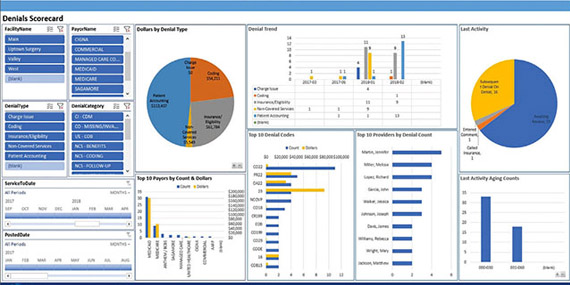Creating Permanent Change in Revenue Cycle Management… Denials Then and Now
In the early days of denial management, the flow of rejected payments or underpayments was typically dealt with as a reactionary defense measure. Using technology to implement denial prevention strategies took a back seat to working denials after they had taken place. For most hospitals and group practices, it was easier to manage denials at the back end by re-submitting them, rather than spending a significant amount of time in changing long-held processes to prevent them. What we know today is that denials, now more thoroughly understood by the industry, need to be strategically prevented and managed simultaneously in order to create permanent change in the revenue cycle.
Claim Denials and Missing or Improperly Coded Data
When it comes to revenue cycle management initiatives, reducing and eliminating denials is always high up on the list of priorities. Denials come in many shapes and sizes. What needs to be understood is that they are not objective. Denials are simply the result of pre-programmed rules within the payer system to look for matching information in a myriad of patient/contract databases. Missing or improperly coded data, from a data processing viewpoint, is simply a trigger mechanism in the programming language to reject or pay a claim, regardless of the information in question or the amount. The programs that pay on a clean claim, don’t distinguish your particular claim from any other. The key to permanent change is to identify the primary source of your denied claims on a regular basis — so that changes can be made to avoid them from happening in the future.
Automated Identification and Routing of Denials
Utilizing business process automation and decisive worklist programming, ReMedics quickly isolates zero pays and provides a daily report to the client. Denied claims can be routed to the appropriate individuals, facilitating timely and effective follow-up with 3rd party payers. Denial trends can then be analyzed in the system and traced to specific areas — from patient access and eligibility to individual physicians, departments and type of service. By identifying the source of each denied claim, denial management improvements allow staff to resolve the root cause of denials, thereby reducing the denial rate of future claims and providing a true process improvement solution. To learn more about how ReMedics Reporting & Analytics can reduce denials for your practice, send us a few details — or call us at 440-671-7700.

